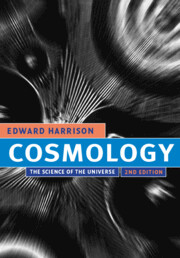Book contents
- Frontmatter
- Contents
- Preface
- Introduction
- PART I
- 1 What is cosmology?
- 2 Early scientific cosmology
- 3 Cartesian and Newtonian world systems
- 4 Cosmology after Newton and before Einstein
- 5 Stars
- 6 Galaxies
- 7 Location and the cosmic center
- 8 Containment and the cosmic edge
- 9 Space and time
- PART II
- PART III
- Appendix – Fundamental quantities
- Index
1 - What is cosmology?
from PART I
Published online by Cambridge University Press: 05 June 2012
- Frontmatter
- Contents
- Preface
- Introduction
- PART I
- 1 What is cosmology?
- 2 Early scientific cosmology
- 3 Cartesian and Newtonian world systems
- 4 Cosmology after Newton and before Einstein
- 5 Stars
- 6 Galaxies
- 7 Location and the cosmic center
- 8 Containment and the cosmic edge
- 9 Space and time
- PART II
- PART III
- Appendix – Fundamental quantities
- Index
Summary
He has ventured far beyond the flaming ramparts of the world and in mind and spirit traversed the boundless universe.
Lucretius (99–55 bc), The Nature of the UniverseTHE UNIVERSE
From the outset we must decide whether to use Universe or universe. This is not so trivial a matter as it might seem. We know of only one planet called Earth; similarly, we know of only one Universe. Surely then the proper word is Universe?
The Universe is everything and includes us thinking about what to call it. But what is the Universe? Do we truly know? It has many faces and means many different things to different people. To religious people it is a theistically created world ruled by supernatural forces; to artists it is an exquisite world revealed by sensitive perceptions; to professional philosophers it is a logical world of analytic and synthetic structures; and to scientists it is a world of controlled observations elucidated by natural forces. Or it may be all these things at different times. Even more diverse are the worlds or cosmic pictures held by people of different societies, such as the Australian aboriginals, Chinese, Eskimos, Hindus, Hopi, Maoris, Navajo, Polynesians, Zulus. Cosmic pictures evolve because cultures influence one another, and because knowledge advances. Thus in Europe the medieval picture, influenced by the rise of Islam, evolved into the Cartesian, then Newtonian, Victorian, and finally Einsteinian pictures.
- Type
- Chapter
- Information
- CosmologyThe Science of the Universe, pp. 13 - 27Publisher: Cambridge University PressPrint publication year: 2000



